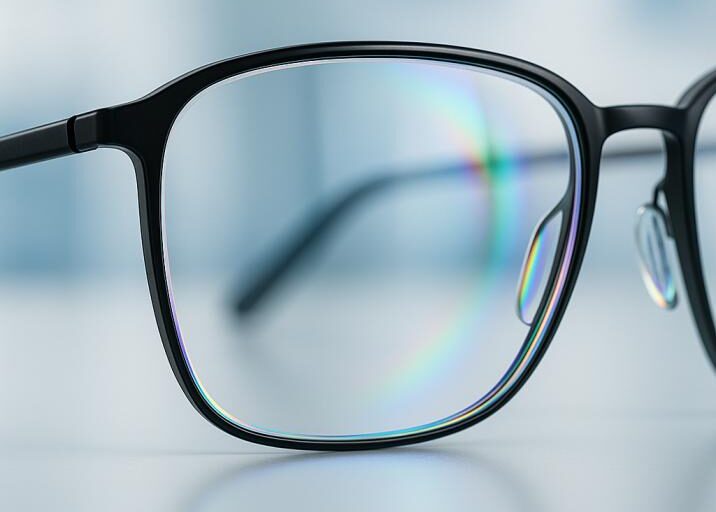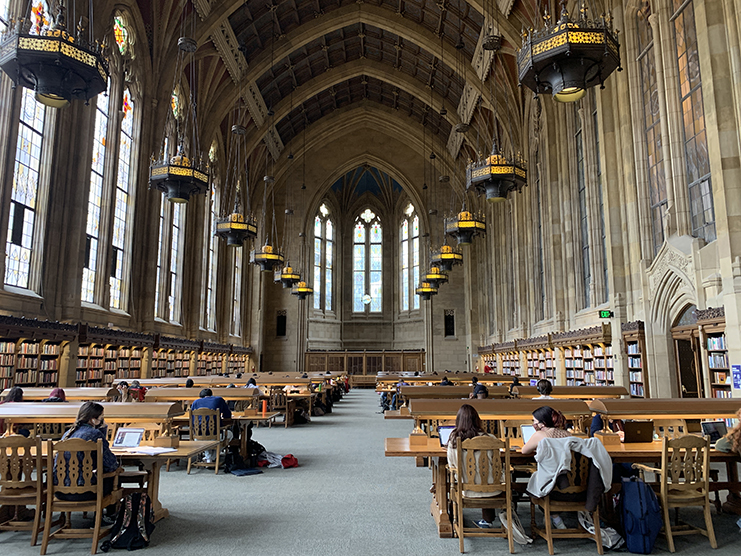How to Prevent Computer Vision Syndrome in College
College life is busier than ever, with students spending countless hours on laptops, tablets, and smartphones for coursework, research, and late-night study sessions. While these digital tools are essential for success, they also come with a downside—computer vision syndrome (CVS).
CVS, also known as digital eye strain, is a common problem among students, leading to symptoms like blurred vision, headaches, eye fatigue, and even neck and shoulder pain. The good news? With the right habits and professional eye care, you can keep your eyes comfortable and your vision sharp throughout the semester.
If you’re looking for solutions tailored to academic life, Cannon EyeCare in University Village specializes in helping students prevent and treat computer vision syndrome. Here’s what you need to know.
What Is Computer Vision Syndrome?
Computer vision syndrome is a group of eye- and vision-related problems caused by prolonged screen use. The symptoms can include:
-
Dry or irritated eyes
-
Blurry vision
-
Headaches
-
Difficulty focusing
-
Shoulder or neck pain
These symptoms often occur because staring at screens reduces your natural blink rate, increases glare, and forces your eyes to focus at the same distance for long periods. Uncorrected vision issues, like astigmatism or outdated prescriptions, can make the problem worse.
Why College Students Are at Higher Risk
College students are particularly vulnerable to CVS due to their daily routines. Long hours of reading, note-taking, and test preparation are almost always screen-based. Many students also study in environments with poor lighting or improper ergonomics, which adds strain to already overworked eyes.
Add late-night study sessions, binge-watching educational videos, and social media scrolling, and you have the perfect storm for digital eye strain.
Practical Tips to Prevent Computer Vision Syndrome
Preventing CVS doesn’t mean cutting out screens completely—it’s about using them smarter. Here are some eye care tips for college students:
1. Follow the 20-20-20 Rule
Every 20 minutes, look at something 20 feet away for at least 20 seconds. This simple habit relaxes your eye muscles and helps prevent fatigue.
2. Adjust Your Screen Setup
Keep your screen slightly below eye level and about an arm’s length away. Reduce glare by adjusting brightness or using an anti-glare screen filter.
3. Blink More Often
When focusing on a screen, we tend to blink less, which leads to dry, irritated eyes. Consciously remind yourself to blink, and consider using artificial tears if recommended by your eye doctor.
4. Take Frequent Breaks
Short breaks every 50–60 minutes give your eyes a chance to rest. Stand up, stretch, and look at something far away to reset your focus.
5. Use Blue Light Protection
Blue light from screens can contribute to eye strain, especially during late-night study sessions. Blue light filtering glasses or lenses can make a big difference. Ask your optometrist if this option is right for you.
6. Stay Hydrated and Manage Lighting
Drink plenty of water and avoid studying in overly dim or overly bright spaces. Proper lighting reduces the strain caused by glare and harsh contrasts.
7. Get Regular Eye Exams
Sometimes, underlying vision issues like uncorrected prescriptions, astigmatism, or convergence problems amplify CVS symptoms. An eye exam can catch these issues early.
When to Seek Professional Help
If you experience persistent headaches, blurry vision, or discomfort even after adjusting your screen habits, it’s time to see a professional. Cannon EyeCare’s University Village clinic offers specialized solutions for digital eye strain, including:
-
Blue light filtering lenses
-
Dry eye treatments
-
Updated prescriptions to improve visual clarity
-
Personalized tips for reducing screen-related discomfort
Our optometrists understand the unique visual demands of college life and can help you find relief from CVS symptoms.

Dr. Mark J. Cannon
Optometrist
Dr. Mark J. Cannon was raised in Northwest Indiana, very near Chicago. He attended Indiana University in Bloomington and graduated with a Bachelors degree in Biology and Psychology.
Dr. Miranda Cannon
Optometrist
Dr. Miranda Cannon was born and raised in central Indiana, near Indianapolis. She graduated with honors from Indiana University – Purdue University at Indianapolis with a Bachelor’s degree in Biology.
Eye Care for College Students at Cannon EyeCare
Located in University Village, Cannon EyeCare is trusted by students and faculty alike for its comprehensive and affordable eye care. Whether you need a routine exam, help managing digital eye strain, or stylish glasses that fit your budget, we’ve got you covered.
We also offer student-friendly discounts on exams, lenses, and frames, making it easy to get the care you need without stretching your budget.
Don’t let digital eye strain hold you back this semester. Book your comprehensive eye exam at Cannon EyeCare in University Village today and ask about our student discounts and screen-time solutions.
Protect Your Eyes and Excel in College
Your eyes are one of your most valuable tools for learning. By following simple habits—like taking breaks, adjusting your screen setup, and scheduling regular exams—you can prevent computer vision syndrome and stay focused on your academic goals.



